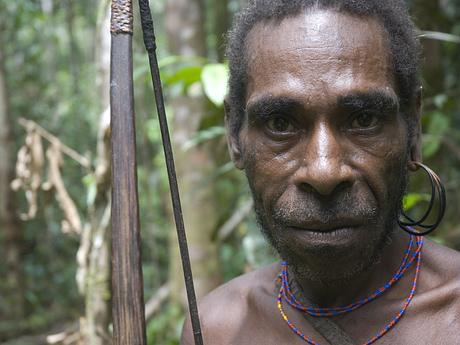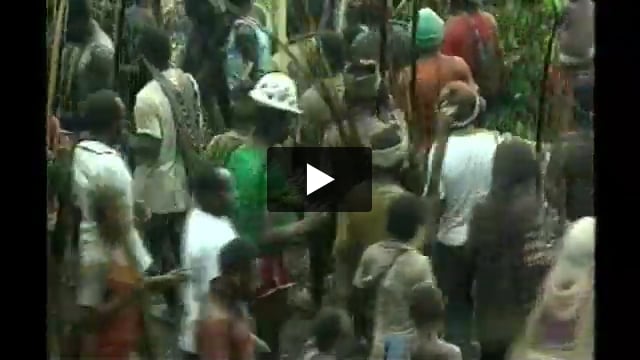Indonesian army kills and rapes tribal people
September 29, 1998
This page was last updated in 1998 and may contain language which is now outdated.
"If you ask whether they agree to move from the area, of course they agree – because they are being forced with a gun."
Amungme leader
A recent investigation has revealed that the Indonesian army has been killing and raping tribal people in Papua (formerly Irian Jaya). It provides detailed evidence that 11 people have been killed, two people have disappeared and at least 111 more have died from hunger or disease in three villages alone. Women and girls as young as three years old have been systematically raped and gang-raped. The research was carried out by Papua's three main churches.
Indonesia's own National Human Rights Commission has confirmed that gross human rights violations, including killings, have taken place. Their investigations have centred around the region of the giant American and British-owned Grasberg copper and gold mine,and the Amungme and Nduga villages of Bela, Alama and Mapnduma 150 km to the east.
Indonesian military oppression extends throughout the whole of Papua. The region of the Grasberg mine has one of the highest concentrations of soldiers in Indonesia, and the army has also occupied and closed the area around Bela, Alama and Mapnduma. The inhabitants of these villages are being prevented from leaving by the army, who allege that anyone seen in the forest is connected to the OPM (the Free Papua Movement, an organisation which has resisted Indonesian occupation for 35 years).
Because of the military restrictions, villagers cannot travel to their vegetable gardens, or into the forest to hunt, without the risk of being shot. As a result, hundreds have fled from their villages in fear, many of them subsequently dying of starvation and disease. The International Committee of the Red Cross reports that more than half of the tribal people in the area are suffering from malnutrition and almost all have malaria, a disease previously rare in this region. In one village, 20% of the population have died. Much of the aid intended for them is stolen by the soldiers.
The Nduga and Amungme are highland peoples who live by shifting cultivation and hunting; they also keep pigs which are eaten only on special occasions. Because their vegetable gardens and hunting grounds are often far from their homes, they have no way to feed themselves when confined to their villages. Soldiers have now killed or stolen many of their pigs.
This appalling situation is made worse by the lack of meaningful land rights in Indonesia. Although international law confirms that tribal peoples have the right to own their land and resources, Indonesia does not recognise this right. It does, however, recognise tribal rights under 'adat', the ancient and complex system of community rights common throughout South East Asia, but only as long as this does not clash with the supposed 'national interest' – in other words, as long as the land is not needed by any multinational or military-run company. If it is, then the fact that the Indigenous inhabitants have been living there for 40,000 years counts for nothing. In Indonesia all forests and the natural resources within them are controlled by the state. The 31 million forest-dwelling tribal people in Indonesia, and the almost one million Papuans, have no control over their land at all. In practice, the management of forests is mostly in the hands of private mining or logging companies, which have the power to ban tribal people from entering their own land.
The new government of Indonesia is continuing ex-President Suharto's vigorous exploitation of Papua's natural resources, ignoring the fact that, under international law, these are the property of tribal peoples. The army is being used to crush all opposition. Until the military forces are restrained and tribal peoples' land rights are recognised, the people of Papua will continue to lose their lands and lives in the name of the 'national interest'.



